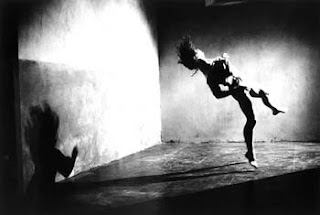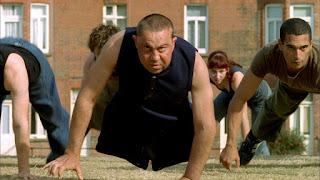Steven Berkoff
Steven Berkoff:
-Was born Leslie Steven Berks on 3rd August 1937, in Stepney in the East End of London.
- is a British actor, author, playwright, practitioner, and theatre director.
-The son of a housewife, Pauline (née Hyman), and a tailor, Alfred Berks, his family was Jewish, with origins in Romania and Russia. The family name was originally Berkoff, but in order to help the family's assimilation into Britain, it was anglicized to Berks. Subsequently, Berkoff changed his surname to the original family name legally, and went by his middle name.
Theatre:
For approximately two months, in June and July 1962, Berkoff began his theatre training at the Repertory Company at Her Majesty's Theatre in Barrow-in-Furness. Berkoff is a noted playwright and theatre director as well as an actor.[12] His earliest plays are adaptations of Franz Kafka 's works: The Metamorphosis (1969); In the Penal Colony (1969); and The Trial (1971). He published a number of verse plays in the 1970s and 1980s, including East (1975), Greek (1980), and Decadence (1981) and many others.
Steven Berkoff wrote many series of plays against the political landscapes as he was heavily influenced by political and religious remarks since he was involved in expressing his view and opinion about how he believes how Jews and Israel is regraded in Britain.
Key features of Berkoff style:
-Mime
-Stylized Movement
-Exaggerated vocal work
-Direct address/asides
-Improvisations with an ensemble environment
Tasks we did in class:
We did a slow motion exercise that helped us to make a simple and relaxed slow precise motion as it helped us become more conscious of our reaction time and helped us to exaggerate facial expressions because we were mostly used to doing more normal paced acting pieces and it also encourage us to push through our boundaries and limits so we develop more skills which will be useful in future performances.
Another exercise we did was a record player that we went in a circular motion that allowed us to regulate more of our body language and to be able to stop / play / fast forward / slow down when told that we were tired because we had to focus on what we were told to do.
The final exercise we displayed was a 'burden' meaning this was to help us build a deeper understanding of the characters so that their thoughts and what their perceptions and body language are trying to do and empathize with this burden and what they are feeling.


Comments
Post a Comment